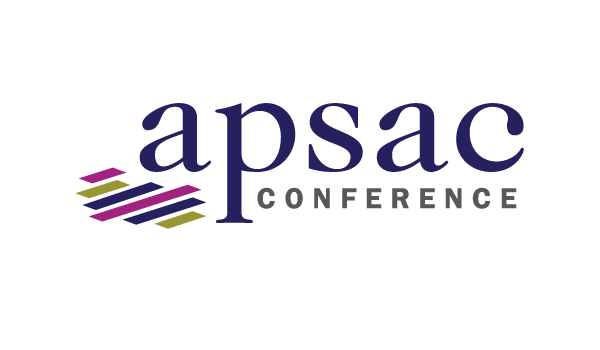Workshops
All workshops are held on Monday 29 July 2024.
Workshop options include full or half-day sessions and align with the conference theme of Meeting the integrity challenge: the power of innovation, diversity and collaboration.
Workshop registrations have now closed.
Full-day workshops: 08:30 to 16:30
Full-day workshops include 30-minute breaks for morning and afternoon tea, and one hour for lunch.
Workshop check-in for full-day or morning workshops is from 08:00.
Half-day morning workshops: 08:30 to 12:00
Half-day morning workshops include a 30-minute break for morning tea.
Half-day afternoon workshops: 13:00 to 16:30
Workshop check-in for afternoon workshops is from 12:30.
Half-day afternoon workshops include a 30-minute break for afternoon tea.
Workshop A: Full day (08:30 to 16:30)
Combating barriers to an ethical culture
Presented by:
Ethical Standards Command, Queensland Police Service (QPS)
This workshop covers the following 3 topics:
Embedding ethical leadership within an organisation
Strategies to support active bystandership
Giving meaning to organisational values.
The workshop aims to additionally provide participants with an understanding of the role of a bystander and to equip viewers with the skills to become an active bystander in circumstances where negative behaviour is occurring.
It will serve to educate delegates with an awareness of the impact of bystander behaviour on the individual, the working group, and the organisation. Through this workshop, the delegates will gain insight and awareness into how they can enrich the ethical culture across their organisation.
Workshop B: Full day (08:30 to 16:30)
What happened? How to conduct an internal investigation
Presented by:
The internal investigations workshop will assist public officers to conduct thorough and fair internal investigations.
Senior Commission investigators offer participants valuable tools to ensure internal investigations are properly planned, carried out fairly and focused on truth-finding.
The capacity to conduct thorough and timely internal investigations is essential in preserving an organisation’s integrity. An internal investigation can be used to identify inappropriate and unacceptable behaviour, poor policies and procedures, and failures in process.
Workshop C: Full day (08:30 to 16:30)
Australian and Pacific anti-corruption agencies – sharing best practice in corruption prevention, detection and investigation
Presented by:
National Anti-Corruption Commission (NACC), with representatives from anti-corruption agencies across Australia (federal, state and territory) and the Pacific
This workshop is dedicated to sharing learnings and best-practice from representatives of Australian anti-corruption agencies and selected Pacific agencies. It focuses on the mechanisms that make integrity agencies successful, as well as the technical challenges they face in their everyday work.
Some dedicated sessions will cover intake, triage and assessment processes, corruption prevention and education, approaches to investigating corruption, witness, and whistleblower protection, among other issues. The workshop will enable participants to access direct expertise and benchmark capabilities for their own integrity practice.
Workshop D: Half-day morning (08:30 to 12:00)
Workshop includes a 30-minute break for morning tea.
Psycho-social safety and integrity – the critical link
Presented by:
Professor Melinda Edwards, Ethics Advisory Services
Dr Alistair Ping, Ethics Advisory Services
This workshop will explore the critical link between psycho-social safety and integrity and how these insights can be used by leaders and regulators to promote more pro-integrity workplaces for the future. In the workshop participants will experience the 4 organisational archetypes of psychological safety by ‘walking the mat’.
Consider the impact of hierarchy and fear on collective learning
Learn how to identify the stages of psychological safety and how those levels correlate to changes in behaviour
Explore strategies for cultivating greater psychological safety and a pro-integrity culture in your workplace
Workshop E: Half-day afternoon (13:00 to 16:30)
Workshop includes a 30-minute break for afternoon tea.
Building a culture of integrity – ethics, governance and corruption
Presented by:
This interactive workshop will explore:
The basics of ethical literacy and the application of organisational ethical frameworks
The role of culture in accounting for corruption and other forms of unethical staff conduct
Ways of measuring organisational culture and assessing if an organisation is in control of its culture
Emerging best practice – practical tools and techniques that promote a culture of integrity in organisations
Participants will walk out of the workshop knowing the importance of culture as a ‘third dimension’ to anti-corruption work, along with some tools and techniques they can employ to build a culture of integrity in their workplace.
Workshop F: Half-day morning (08:30 to 12:00)
Workshop includes a 30-minute break for morning tea.
10 most common probity and procurement failures in government projects and how to avoid them
Presented by:
Scott Alden, Partner, Government and Commercial Law, Mills Oakley
Lachlan Drew, Partner, Commercial Disputes Government, Mills Oakley
The most prevalent corruption risks in different sectors of government and law enforcement
Key factors and environments that facilitate corruption and misconduct risks
Organisational functions that are particularly vulnerable
Appropriate and effective controls, and how they should be implemented
Delegates will benefit by hearing from an experienced probity and procurement specialist providing the top issues in procurement failures and how to avoid them.
Workshop G: Half-day afternoon (13:00 to 16:30)
Workshop includes a 30-minute break for afternoon tea.
Corruption prevention in grant-making
Presented by:
Adam Shapiro, Principal Officer Education, NSW Independent Commission Against Corruption (NSW ICAC)
This workshop is designed for public officials involved in the development and administration of grants and grant programs. It focuses on addressing corruption risks in awarding and administering grants.
This workshop is designed to help participants:
understand the nature of corruption and the types of conduct that could constitute corruption in grants programs
identify conduct that should be reported
identify and manage conflicts of interest
become aware of some of the corruption risks in the development and administration of a grants program, and some of the strategies for managing these risks.
